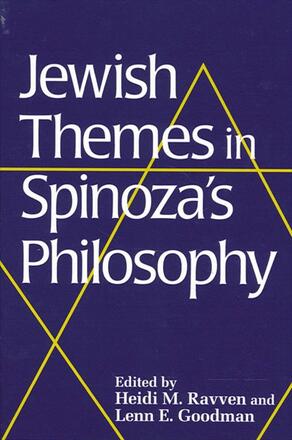
Jewish Themes in Spinoza's Philosophy
Alternative formats available from:
Explores Jewish aspects of Spinoza's philosophy from a wide variety of perspectives.
Description
Breaking new ground in the study of Spinoza's philosophy, the essays in this volume explore the extent to which Spinoza may be considered a Jewish thinker. The rich diversity of Spinoza scholarship today is represented here by a wide range of intellectual methods and scholarly perspectives—from Jewish philosophy and history, to Cartesian-analytic and Continental-Marxist streams of interpretation, to the disciplines of political science and intellectual history. Two questions underlie all the essays: How and in what measure is Spinoza's a Jewish philosophy, and what is its impact on the project of Jewish philosophy as a living enterprise now and for the future? The contributors' varied perspectives afford a highly nuanced vision of the multifaceted Judaic tradition itself, as refracted through the Spinozist lens. What draws them together is the quest for enduring insights that emerge from the philosophy of Spinoza.
Heidi M. Ravven is Professor of Religious Studies at Hamilton College. Lenn E. Goodman is Professor of Philosophy at Vanderbilt University. He is the author of many books, including Jewish and Islamic Philosophy: Crosspollinations in the Classic Age, and the editor of Neoplatonism and Jewish Thought, also from SUNY Press.
Reviews
"This is the first serious attempt to offer a sophisticated look at Spinoza's relationship to Jewish philosophy and religion. It is an excellent collection of essays, and absolutely central to understanding Spinoza and his place in the history of Jewish philosophy." — Steven Nadler, author of Spinoza: A Life
"Without imposing upon themselves or Spinoza a single definition of Judaism or 'Judeity,' the authors manage to refresh inquiry in three fields: the history of European thought, premodern Jewish intellectual history, and the scope of Jewish culture in postmodernity." — Kalman P. Bland, author of The Artless Jew: Medieval and Modern Affirmations and Denials of the Visual